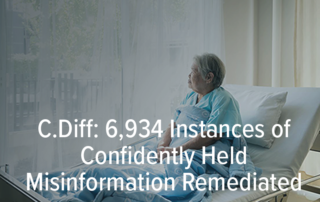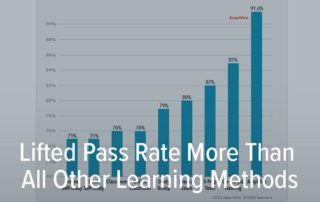C. difficile Case Study
Clostridium difficile is a gram-positive, spore-forming bacterium that causes serious disease ranging from diarrhea to potentially lethal pseudomembranous colitis. The rate of C. difficile infections (CDIs) has been rising steadily since 2000, complicated by the emergence of virulent new strains. One of the major risk factors for development of CDI is exposure to antibiotics, which alter the normal gut flora.









